
Gorges du Tarn: France’s Natural Wonderland
Nestled in the heart of southern France, Gorges du Tarn is a breathtaking canyon carved by the Tarn River. This natural wonder is surrounded by limestone cliffs that rise dramatically from the valley floor, creating a stunning landscape that draws nature lovers, adventurers, and peace seekers alike. The crystal-clear waters of the river meander through the gorge, providing a perfect setting for kayaking, swimming, and fishing. The Gorges du Tarn is also a paradise for hikers, with numerous trails that offer panoramic views of the canyon and its surrounding forests. The region is dotted with charming medieval villages, such as Sainte-Enimie and La Malène, where visitors can step back in time and explore cobblestone streets, historic churches, and local markets. In addition to its natural beauty, the area boasts a rich cultural heritage. The local cuisine, featuring specialties like Roquefort cheese and aligot, a dish made from potatoes and cheese, is a must-try. Whether you are looking for an active holiday or a peaceful retreat, Gorges du Tarn promises an unforgettable experience.
Local tips in Gorges du Tarn
- Visit during spring or autumn to avoid the peak tourist season and enjoy mild weather.
- Bring sturdy hiking boots for exploring the many trails in the area.
- Try local delicacies like Roquefort cheese and aligot at nearby village restaurants.
- Consider renting a kayak to fully appreciate the beauty of the Tarn River.
- Stay in a local bed and breakfast for an authentic experience.
Gorges du Tarn: France’s Natural Wonderland
Nestled in the heart of southern France, Gorges du Tarn is a breathtaking canyon carved by the Tarn River. This natural wonder is surrounded by limestone cliffs that rise dramatically from the valley floor, creating a stunning landscape that draws nature lovers, adventurers, and peace seekers alike. The crystal-clear waters of the river meander through the gorge, providing a perfect setting for kayaking, swimming, and fishing. The Gorges du Tarn is also a paradise for hikers, with numerous trails that offer panoramic views of the canyon and its surrounding forests. The region is dotted with charming medieval villages, such as Sainte-Enimie and La Malène, where visitors can step back in time and explore cobblestone streets, historic churches, and local markets. In addition to its natural beauty, the area boasts a rich cultural heritage. The local cuisine, featuring specialties like Roquefort cheese and aligot, a dish made from potatoes and cheese, is a must-try. Whether you are looking for an active holiday or a peaceful retreat, Gorges du Tarn promises an unforgettable experience.
When is the best time to go to Gorges du Tarn?
Iconic landmarks you can’t miss
Sublime Point
Experience the grandeur of the Gorges du Tarn from Sublime Point, a scenic overlook offering breathtaking panoramic views and natural beauty.
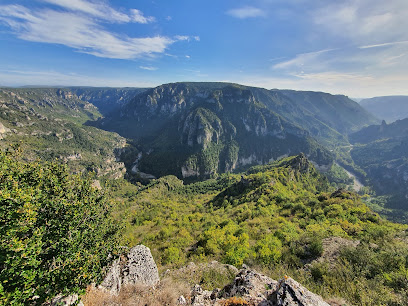
Chaos de Montpellier-le-Vieux
Explore the breathtaking geological formations and scenic beauty of Chaos de Montpellier-le-Vieux in Millau, a must-visit natural attraction in France.
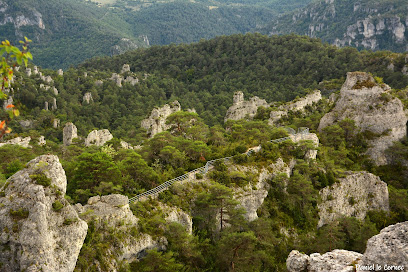
The Boatmen of the Gorges du Tarn
Discover the Gorges du Tarn with a scenic boat tour led by local boatmen, a tradition for over a century. Experience the canyon's beauty from the water.
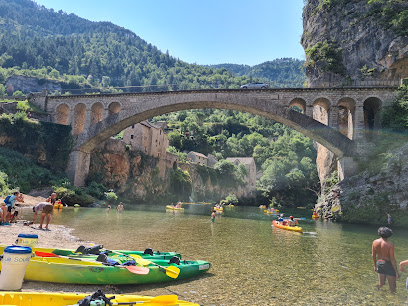
Grotte De Dargilan
Discover the Grotte de Dargilan, the Pink Cave: a mesmerizing subterranean world of colorful formations and vast chambers in the heart of the French Causses.
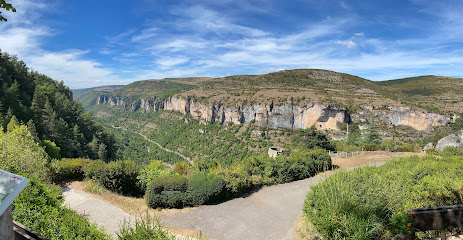
Castle Peyrelade
Explore the remains of this medieval fortress offering panoramic views of the Tarn Valley and a glimpse into the region's rich history.
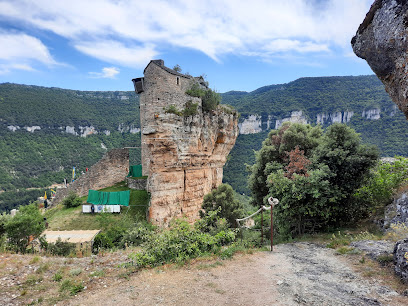
Canoe Au Moulin de la Malene
Discover the Gorges du Tarn from the water with canoe, kayak, and paddleboard rentals at a historic mill run by a passionate family since 1973.
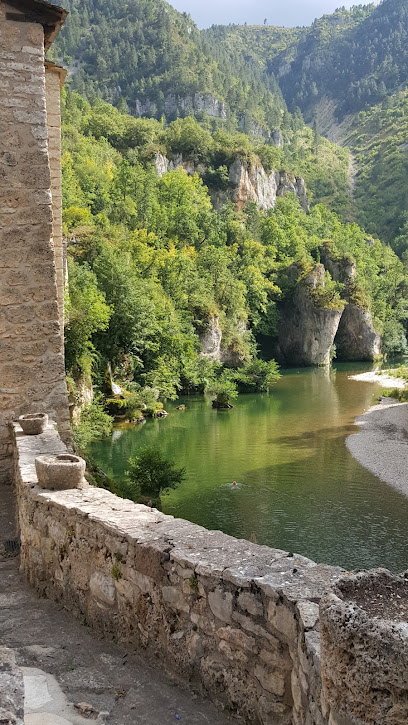
FERME CAUSSENARDE D'AUTREFOIS
Discover rural life in the Cevennes at La Ferme Caussenarde d'Autrefois, a preserved 17th-century farm offering an immersive historical experience.
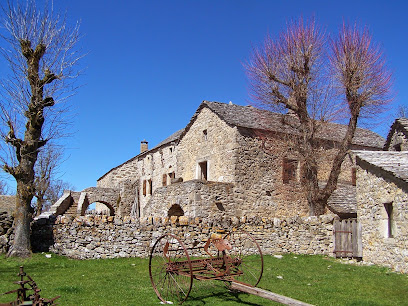
Le Saltadou : Panorama du cirque de Saint-Chély-du-Tarn
Experience breathtaking panoramic views of the Cirque de Saint-Chély-du-Tarn, local cuisine, and regional products at this easily accessible viewpoint.
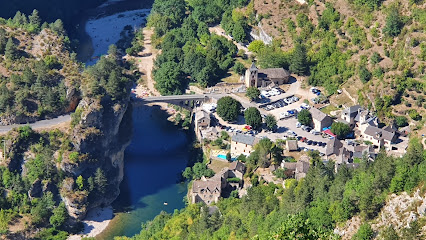
Le Moulin de Cénaret
Discover local crafts and the charm of a historic mill in the heart of the Gorges du Tarn at Le Moulin de Cénaret.
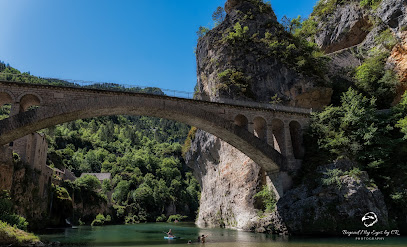
Gorges de la Jonte
Discover the Gorges de la Jonte: a breathtaking canyon in France offering stunning views, outdoor adventures, and unique wildlife encounters.
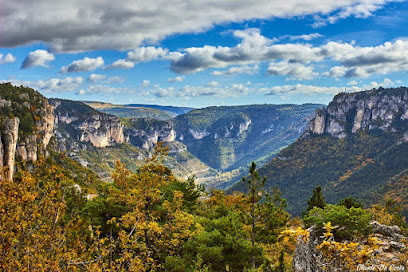
Les Gorges du Tarn .fr
Explore the majestic Gorges du Tarn: a canyon paradise offering outdoor adventures, stunning scenery, and rich history.
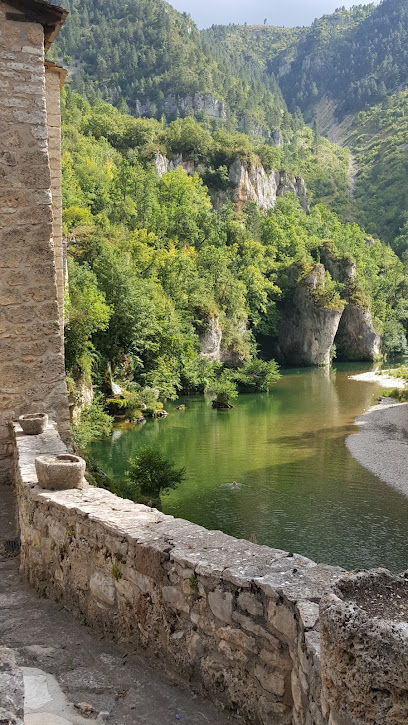
Les Détroits
Discover the charm of Les Déroits, a cozy bed & breakfast in La Malène, surrounded by the stunning landscapes of Gorges du Tarn.

Domaine départemental de Boissets
Explore a beautifully restored Caussenard farmstead with panoramic views and a fascinating glimpse into local history and culture.
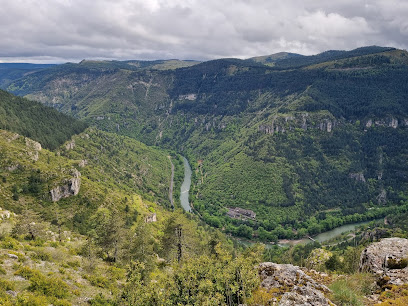
Gorges du Tarn en canoé
Experience the majestic Gorges du Tarn from a unique perspective – glide through towering cliffs and discover hidden gems by canoe.
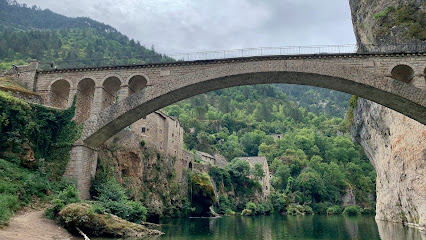
Point sublime de Saint-Jean des Balmes, 12720 Veyreau
Experience breathtaking panoramic views of the Gorges de la Jonte and Causse Noir from this remarkable vantage point near Veyreau.
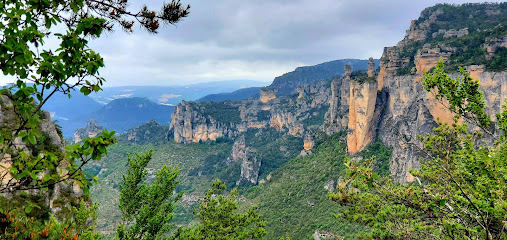
Unmissable attractions to see
Cascade du Déroc
Explore the enchanting Cascade du Déroc in Nasbinals, a stunning waterfall surrounded by lush landscapes and breathtaking views.
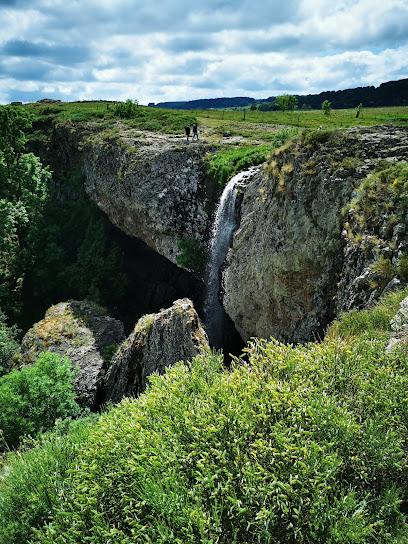
Mausolée romain
Explore the Mausolée Romain in Lanuéjols, a captivating blend of history and natural beauty in the Lozère region of France.
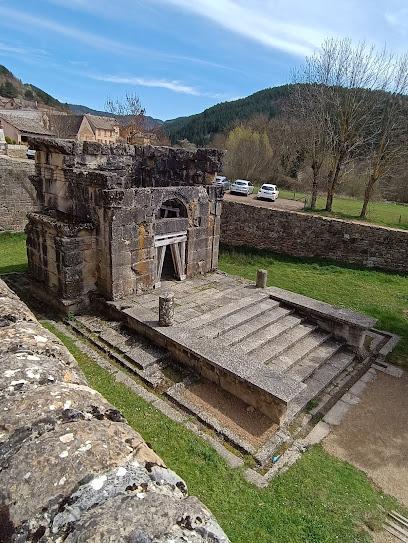
Aven Armand
Discover the breathtaking beauty of Aven Armand, a stunning limestone cave in Hures-la-Parade, renowned for its incredible stalactite formations and rich history.

Essential places to dine
Restaurant des Douzes
Experience authentic French cuisine at Restaurant des Douzes, where family-friendly dining meets local culinary excellence in the heart of Douzes.
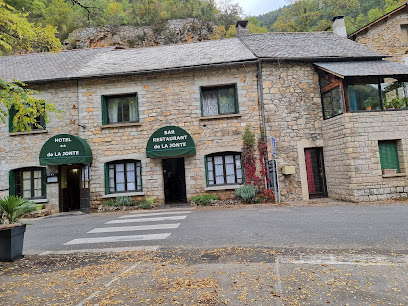
Hôtel de la Muse
Discover tranquility and exquisite French cuisine at Hôtel de la Muse in Mostuéjouls – your ideal retreat in Aveyron's stunning landscapes.

Auberge du Moulin
Experience authentic French cuisine amidst stunning natural landscapes at Auberge du Moulin in Gorges du Tarn.
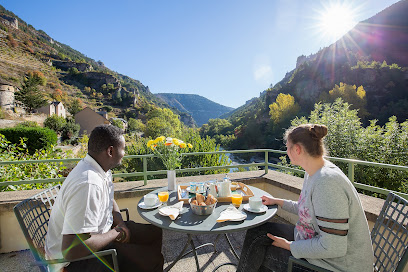
Logis Auberge de la Cascade
Discover Logis Auberge de la Cascade: A perfect blend of comfort and gourmet dining amidst the stunning landscapes of Gorges du Tarn.

Le Petit Paris
Discover the flavors of France at Le Petit Paris in Gorges du Tarn - a cozy restaurant and bar offering delightful local cuisine and warm hospitality.
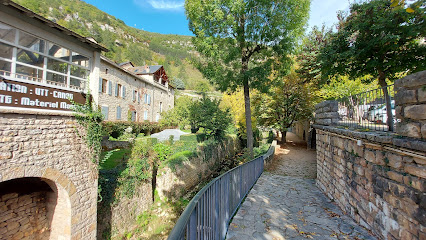
Bar-Restaurant des Gorges du Tarn
Savor exquisite French cuisine amidst breathtaking landscapes at Bar-Restaurant des Gorges du Tarn – an unforgettable dining destination.
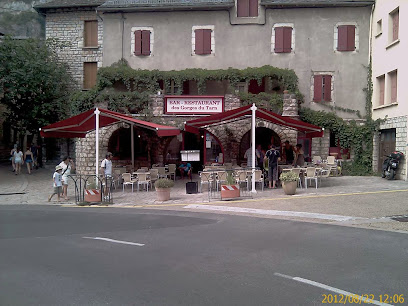
Chez Alex | Chambres d'hôtes Gorges du Tarn | Gîte Étape | Hébergement | Restaurant | Les Vignes
Experience unparalleled comfort and local charm at Chez Alex in the stunning Gorges du Tarn - your perfect getaway amidst nature's beauty.
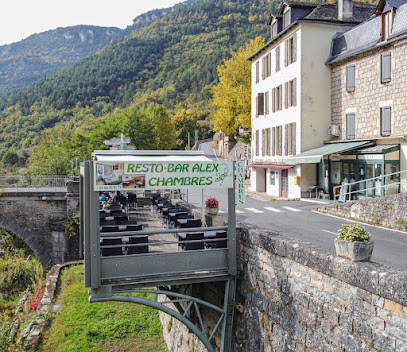
L'Auberge du Terroir
Experience exquisite French and Mediterranean cuisine at L'Auberge du Terroir in Mostuéjouls, where local flavors meet rustic charm.
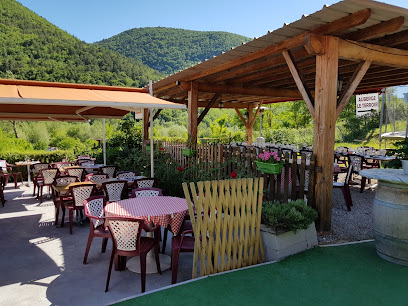
Auberge de Peyreleau
Discover exquisite French cuisine at Auberge de Peyreleau in the heart of Peyreleau, where tradition meets warm hospitality.
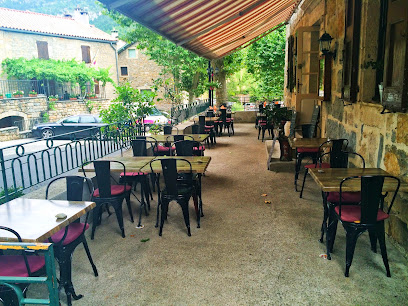
Hotel Le Parisien
Discover comfort and culinary excellence at Hotel Le Parisien in La Tieule – your gateway to authentic French hospitality.
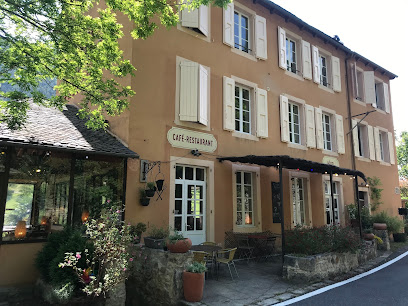
La Table de Lisa
Experience the best of French and Mediterranean cuisine at La Table de Lisa in beautiful La Malène.
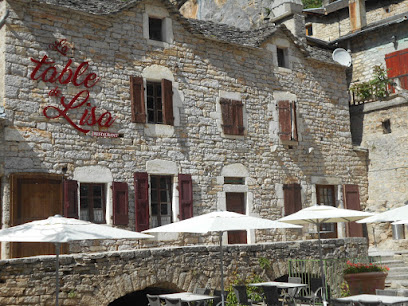
CHEZ MARCO
Experience authentic French cuisine at Chez Marco in Gorges du Tarn, where stunning views meet delicious flavors.
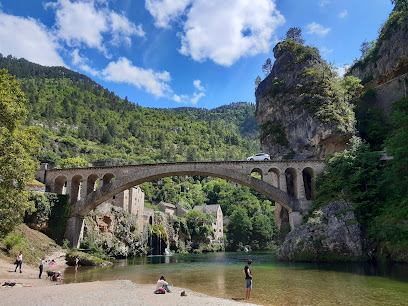
Hotel Bar Restaurant Le Grillon (Bar extérieur bord du tarn)
Discover culinary delights at Hotel Bar Restaurant Le Grillon amidst breathtaking views along the Tarn River in Massegros Causses Gorges.
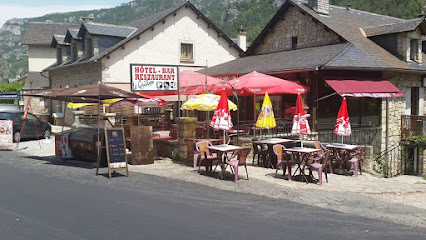
Restaurant Le Bel Ete
Discover exquisite local cuisine amidst breathtaking landscapes at Restaurant Le Bel Ete in Gorges du Tarn.
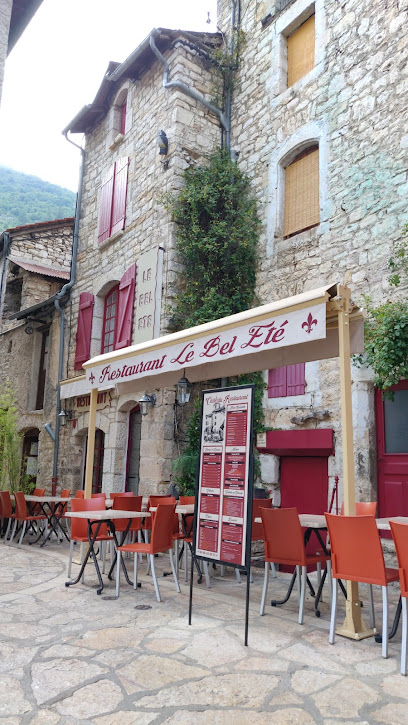
Le Sahuc
Experience exquisite Haute French cuisine at Le Sahuc in Rivière-sur-Tarn, where every meal is a celebration of flavor and elegance.
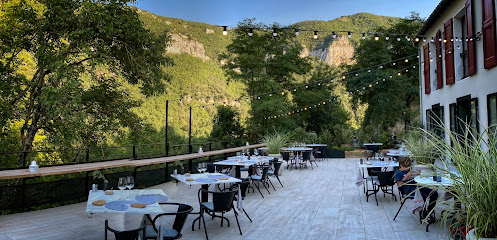
Markets, malls and hidden boutiques
Gorges du Tarn
Experience the awe-inspiring beauty of Gorges du Tarn, a natural wonder in France perfect for adventure seekers and nature lovers alike.
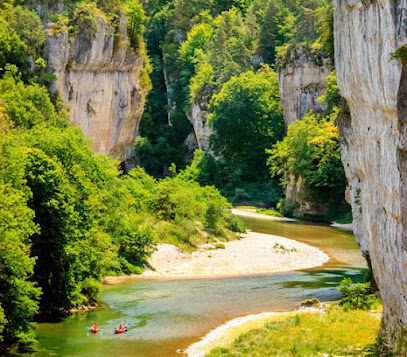
La Sauvagine
Discover the delightful flavors of France at La Sauvagine, a beloved bakery in the scenic Massegros Causses Gorges.
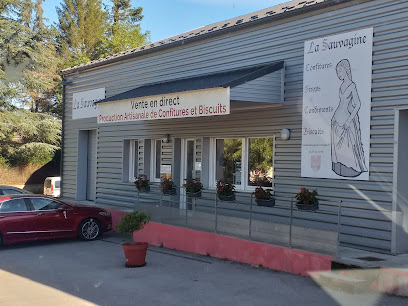
Vival supérette
Experience the best of local flavors at Vival Supérette, your go-to grocery store in the heart of Massegros Causses Gorges.
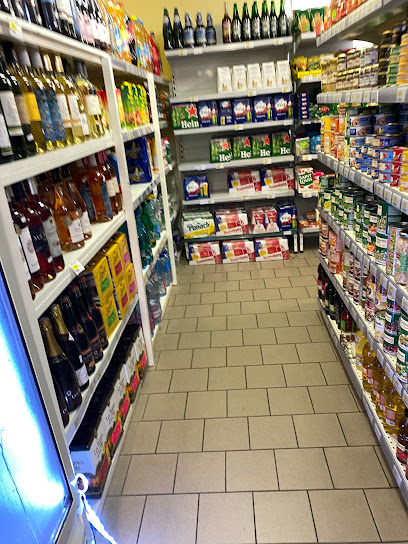
Lili Clément
Experience the charm of Lili Clément in Gorges du Tarn, where local artisans showcase unique products and flavors of the region.
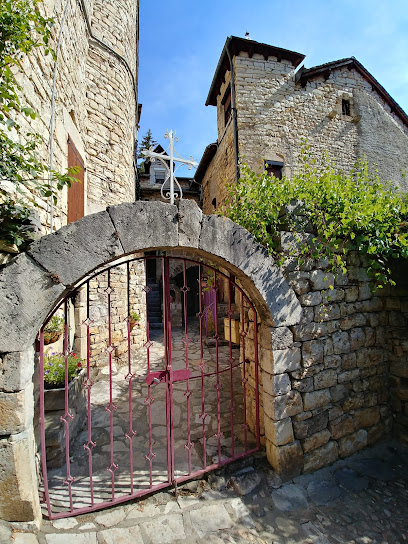
Epicerie des Gorges du Tarn
Explore the flavors of the Gorges du Tarn at Epicerie des Gorges du Tarn, your go-to convenience store for local delicacies.
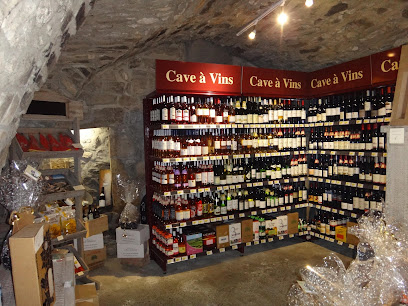
Maison Viala boyne
Explore Maison Viala in Rivière-sur-Tarn for exquisite meats and local delicacies that capture the essence of French culinary tradition.
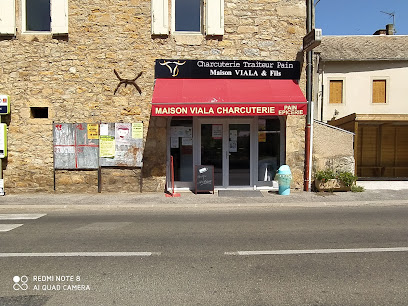
Épicerie
Discover local flavors and treasures at Épicerie in Massegros, where authentic French culinary delights await every visitor.

Benezet Henri
Explore the enchanting antique store, Benezet Henri, in Aguessac, where timeless treasures await every curious traveler.
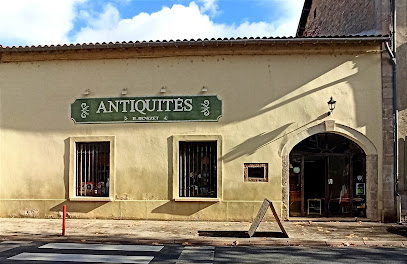
La Rue Française
Explore La Rue Française in Millau, where local craftsmanship meets unique treasures for the perfect souvenir.
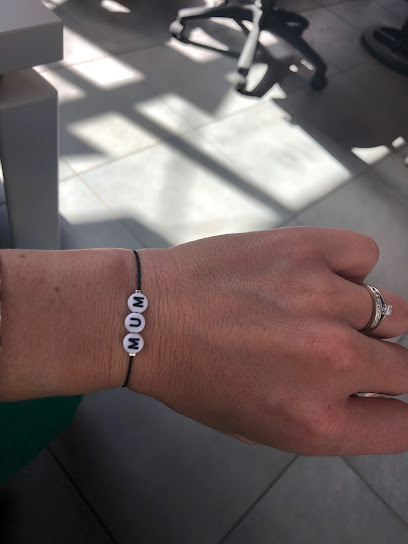
La Poterie
Explore the unique charm of La Poterie, a handcrafted pottery store in the breathtaking Gorges du Tarn, perfect for unique gifts and souvenirs.
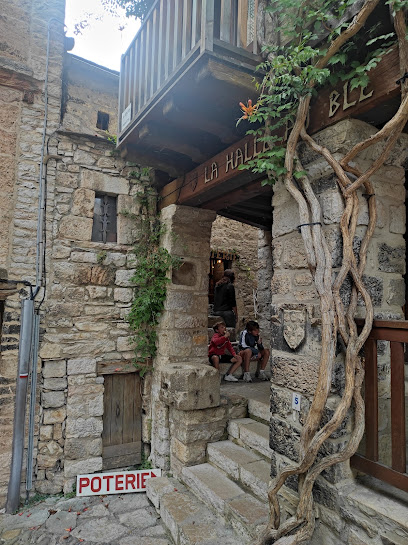
Aux Saveurs Cévenoles
Explore the best of natural foods and local delicacies at Aux Saveurs Cévenoles in the heart of Meyrueis, France.
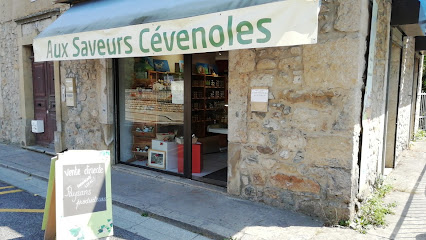
Gevaudan Boutique
Explore Gevaudan Boutique in La Malène for unique local crafts and artisanal goods that capture the spirit of this beautiful region.
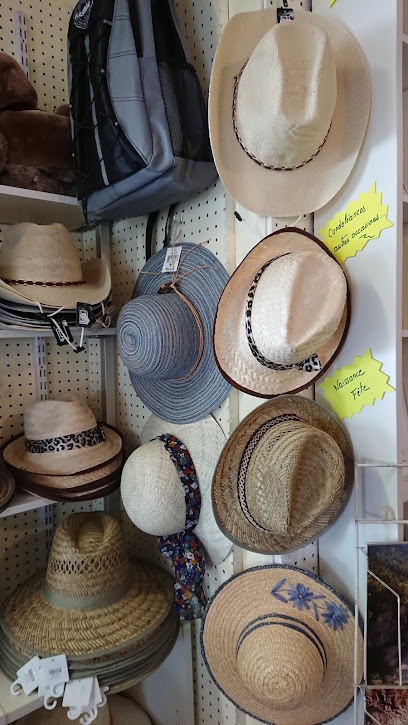
Parfums SAMA
Explore the luxurious world of organic fragrances at Parfums SAMA in Rivière-sur-Tarn, a perfect blend of nature and elegance.
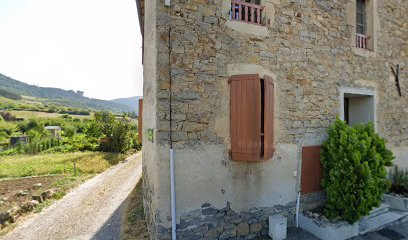
La boutique
Discover unique fashion at La Boutique in Sévérac-d'Aveyron, where local style meets charm for an unforgettable shopping experience.
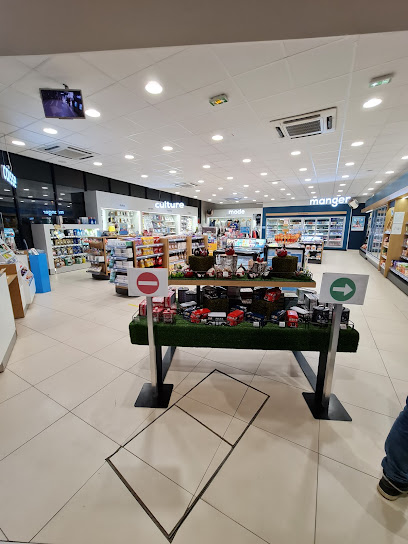
Les Souvenirs D'Emile
Explore unique souvenirs and local crafts at Les Souvenirs D'Emile in Gorges du Tarn Causses, capturing the essence of your travel experience.
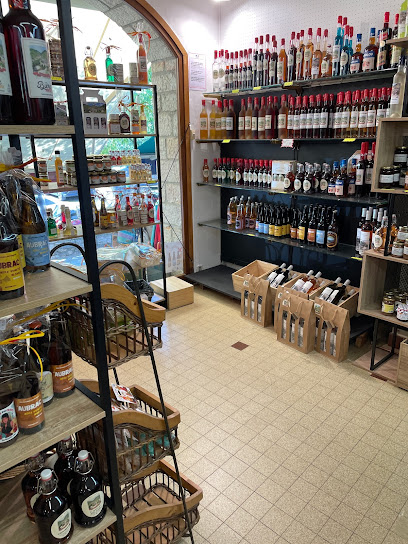
Essential bars & hidden hideouts
Bar-Restaurant des Gorges du Tarn
Savor delicious French cuisine and stunning views at the Bar-Restaurant des Gorges du Tarn, the perfect stop in a breathtaking natural setting.
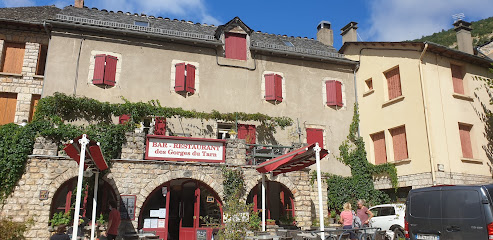
Chez Alex | Chambres d'hôtes Gorges du Tarn | Gîte Étape | Hébergement | Restaurant | Les Vignes
Experience the charm of Chez Alex in the Gorges du Tarn, where cozy accommodations meet exquisite local cuisine in a stunning natural setting.
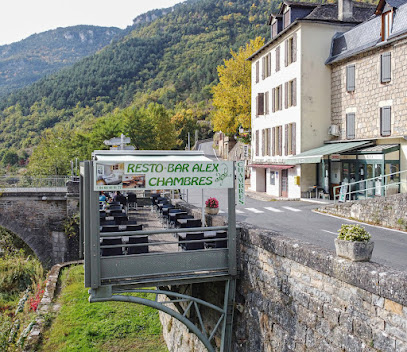
Le Saltadou : Panorama du cirque de Saint-Chély-du-Tarn
Experience the stunning panoramic views of Le Saltadou at Cirque de Saint-Chély-du-Tarn, where nature meets delightful dining and local culture.
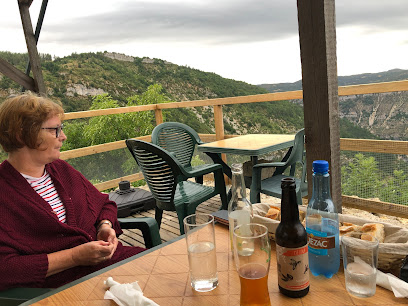
l'Abracada bar
Discover the essence of Gorges du Tarn Causses at l'Abracada Bar, a charming wine and tapas bar perfect for unwinding after a day of adventure.
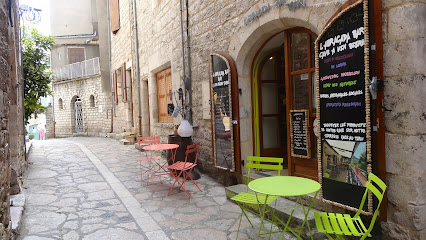
Chez Léon
Discover the delightful brews and cocktails at Chez Léon, a charming brewery nestled in the breathtaking Gorges du Tarn.
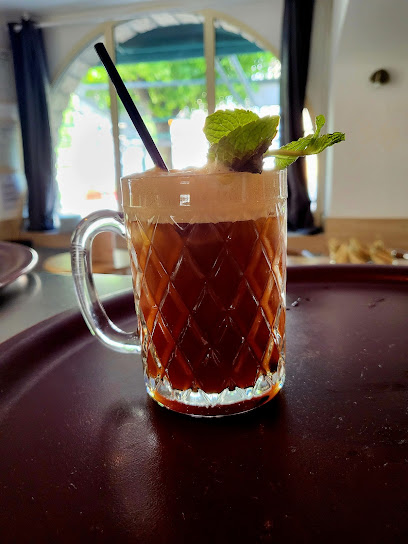
Aux Cinq Arches
Explore Aux Cinq Arches: A scenic tapas bar in Gorges du Tarn offering exquisite dishes and breathtaking views.
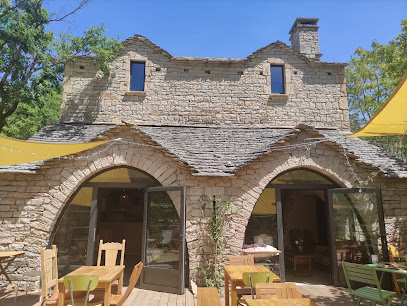
Chez Ricou - Bar Restaurant
Savor the flavors of local cuisine at Chez Ricou, a vibrant bar restaurant in the picturesque village of Massegros Causses Gorges.
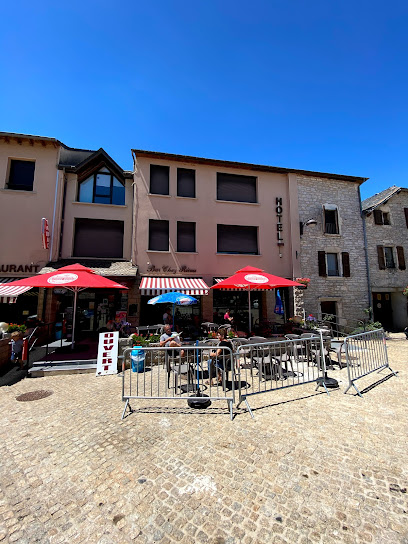
L' Aurore Pub
Discover L' Aurore Pub in Rivière-sur-Tarn, a cozy spot for local drinks and a taste of authentic French hospitality amidst stunning landscapes.
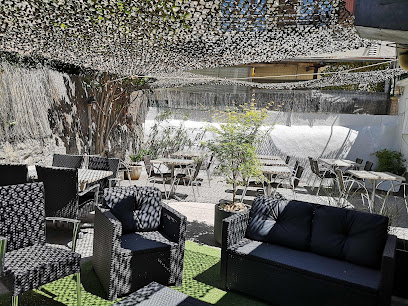
Restaurant-Bar Daily New's
Discover the culinary treasures of Restaurant-Bar Daily New's, where local flavors meet breathtaking views in the heart of Gorges du Tarn.
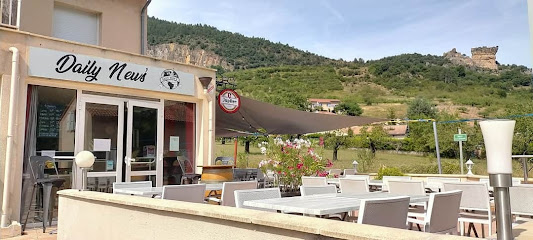
Central Bar
Experience authentic Italian flavors and a vibrant bar atmosphere at Central Bar in the scenic Gorges du Tarn Causses.
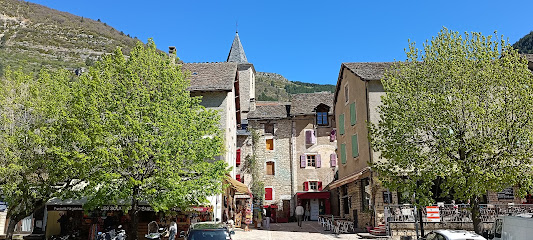
Bar Du Languedoc
Experience the charm of Bar Du Languedoc in Saint-Rome-de-Tarn, where friendly service meets a cozy atmosphere and delightful local beverages.
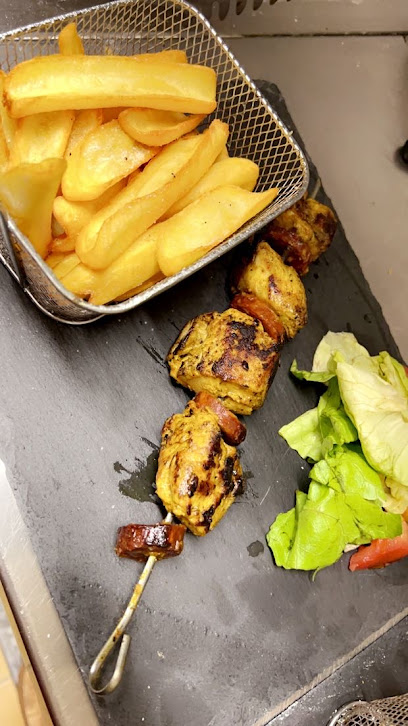
Bar de la digue
Experience the charm of Bar de la Digue, where local flavors meet breathtaking views in the stunning Gorges du Tarn.
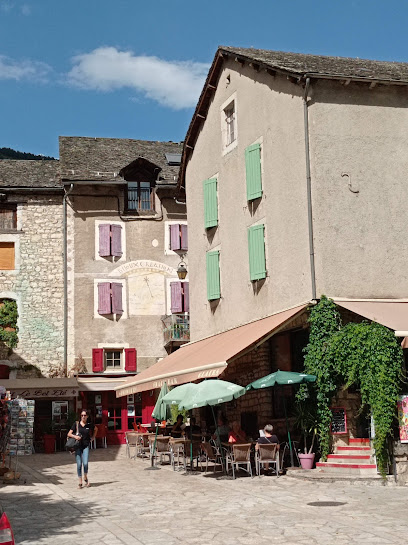
Le Clos d'Is
Discover the charm of Rivière-sur-Tarn at Le Clos d'Is, a cozy bar tabac offering local drinks and stunning views of the Gorges du Tarn.

La buvette de Cassagnes
Discover the essence of Cassagnes at La Buvette de Cassagnes, where live music and local flavors create unforgettable moments.
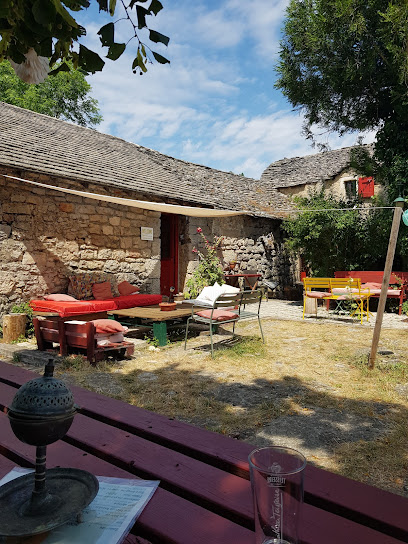
Le Rock's
Discover Le Rock's, a cocktail bar in Gorges du Tarn offering exquisite drinks and a stunning atmosphere for the perfect evening out.
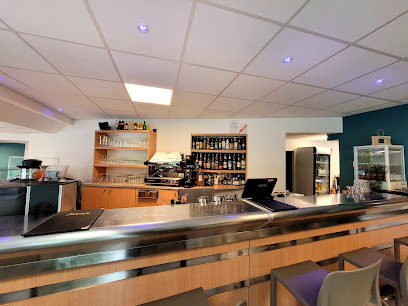
Local Phrases about Gorges du Tarn
-
- HelloBonjour
[bon-zhoor] - GoodbyeAu revoir
[oh-re-vwar] - YesOui
[wee] - NoNon
[nohn] - Please/You're welcomeS'il vous plaît/De rien
[seel voo pleh/duh ryen] - Thank youMerci
[mehr-see] - Excuse me/SorryExcusez-moi/Désolé
[ex-kew-zay mwah/deh-zo-lay] - How are you?Comment ça va?
[koh-mohn sah vah] - Fine. And you?Bien. Et vous?
[byen/et voo] - Do you speak English?Parlez-vous anglais?
[par-lay voo ahn-glay] - I don't understandJe ne comprends pas
[zhuh nuh kohm-prahn pah]
- HelloBonjour
-
- I'd like to see the menu, pleaseJe voudrais voir la carte, s'il vous plaît
[zhuh voo-dray vwah-r lay kahrt/seel voo pleh] - I don't eat meatJe ne mange pas de viande
[zhuh nuh mahnj pah duh vyand] - Cheers!Santé!
[sahn-tay] - I would like to pay, pleaseJe voudrais payer, s'il vous plaît
[zhuh voo-dray pay-yay/seel voo pleh]
- I'd like to see the menu, pleaseJe voudrais voir la carte, s'il vous plaît
-
- Help!Au secours!
[oh suh-koor] - Go away!Allez-vous en!
[ah-lay voo zahn] - Call the Police!Appelez la police!
[ah-peh-lay lah po-lees] - Call a doctor!Appelez un médecin!
[ah-peh-lay uh may-suh-dan] - I'm lostJe suis perdu(e)
[zhuh swee pair-doo] - I'm illJe suis malade
[zhuh swee mah-lahd]
- Help!Au secours!
-
- I'd like to buy...Je voudrais acheter...
[zhuh voo-dray zah-shay] - I'm just lookingJe regarde juste
[zhuh ruh-gard zhewst] - How much is it?Combien ça coûte?
[kohm-byen sah koot] - That's too expensiveC'est trop cher
[say troh shay] - Can you lower the price?Pouvez-vous baisser le prix?
[poo-veh voo bay-say luh pree]
- I'd like to buy...Je voudrais acheter...
-
- What time is it?Quelle heure est-il?
[kell uhr ay-teel] - It's one o'clockIl est une heure
[eel ay tun uhr] - Half past (10)Dix et demie
[dees ay duh-mee] - MorningMatin
[mah-tahn] - AfternoonAprès-midi
[ah-pray mee-dee] - EveningSoir
[swahr] - YesterdayHier
[ee-air] - TodayAujourd'hui
[oh-zhoor-dwee] - TomorrowDemain
[duh-mehn] - 1Un
[uhn] - 2Deux
[duh] - 3Trois
[twa] - 4Quatre
[kat] - 5Cinq
[sank] - 6Six
[sees] - 7Sept
[set] - 8Huit
[wheat] - 9Neuf
[nuff] - 10Dix
[dees]
- What time is it?Quelle heure est-il?
-
- Where's a/the...?Où est...?
[oo eh...] - What's the address?Quelle est l'adresse?
[kell eh lah-dress] - Can you show me (on the map)?Pouvez-vous me montrer (sur la carte)?
[poo-veh voo muh mohn-tray/sewr lah kahrt] - When's the next (bus)?Quand est le prochain (bus)?
[kahnd eh luh proh-shang/boos] - A ticket (to ....)Un billet (pour ....)
[uhn bee-yay/poor]
- Where's a/the...?Où est...?
History of Gorges du Tarn
-
The Gorges du Tarn were formed over millions of years through the persistent erosion by the Tarn River. This natural process carved deep canyons and created stunning limestone cliffs, which today stand as some of the most remarkable geological formations in France. The gorge's formation dates back to the Mesozoic era, when the region was submerged under a warm, shallow sea.
-
Evidence of human presence in the Gorges du Tarn dates back to the Paleolithic era. Numerous caves, such as the Baume de Ronze, have yielded artifacts including tools and cave paintings, indicating that early humans found refuge and sustenance in this rugged landscape.
-
During the Roman period, the Gorges du Tarn region was part of the province of Gallia Narbonensis. The Romans built infrastructure, including roads and bridges, some of which facilitated movement through the tough terrain. Remnants of Roman artifacts and architecture can still be found, showcasing the strategic importance of the area in antiquity.
-
In the Middle Ages, the Gorges du Tarn became a site of strategic fortifications. Castles and fortresses such as Château de Peyrelade and Château de Castelbouc were constructed on high cliffs to control the region and protect against invaders. These medieval structures not only served defensive purposes but also became administrative centers for the surrounding lands.
-
The Gorges du Tarn is rich in religious history, with numerous churches and abbeys that date back to the medieval period. The Notre-Dame-des-Treilles Chapel, perched on a cliff, is a notable example of the region's religious architecture. These sacred sites were often places of pilgrimage and played a central role in the spiritual life of the local communities.
-
The Gorges du Tarn has a long history of agriculture, particularly in the cultivation of vineyards and chestnut groves. The terraced fields and ancient irrigation systems bear testimony to the ingenuity of local farmers who adapted to the challenging terrain. Wine production, in particular, has been a staple of the region's economy and culture for centuries.
-
During the 19th century, the Gorges du Tarn saw the rise of small-scale industries, including water mills and tanneries, powered by the Tarn River. These industries contributed to the economic growth of the region and led to the development of small towns and villages along the gorge.
-
The Gorges du Tarn played a significant role during World War II as a hideout for the French Resistance. The rugged terrain provided an ideal refuge for resistance fighters who carried out guerrilla operations against the occupying forces. The local population's support was crucial in these efforts, and the area remains a symbol of resilience and defiance.
-
In recent decades, the Gorges du Tarn has been the focus of conservation efforts aimed at preserving its unique natural and cultural heritage. The region has been designated as a protected area, ensuring that its stunning landscapes and historical sites are maintained for future generations. Eco-tourism has become a significant part of the local economy, promoting sustainable practices and raising awareness about the importance of preserving this remarkable region.
Gorges du Tarn Essentials
-
Gorges du Tarn is located in the Occitanie region of southern France. The nearest international airports are Montpellier-Méditerranée Airport and Rodez-Aveyron Airport, both about a two-hour drive from the gorges. From these airports, you can rent a car or take a train to reach the region. The nearest train stations are in Millau and Mende, from where you can take local buses or taxis to Gorges du Tarn. Alternatively, driving from major cities like Montpellier, Toulouse, or Lyon is a scenic option.
-
Public transportation options include local buses that connect the main towns around Gorges du Tarn, such as Millau, Sainte-Enimie, and La Malène. Taxis are available but can be expensive, so renting a car is often the most convenient way to explore the region. For those who prefer biking, there are numerous rental shops offering bicycles, including electric bikes, which are ideal for navigating the area's hilly terrain.
-
The official currency in France is the Euro (€). Credit cards are widely accepted in hotels, restaurants, and larger stores, but it is advisable to carry some cash for smaller establishments, local markets, and rural areas. ATMs are readily available in towns like Millau and Sainte-Enimie. Ensure you notify your bank of your travel plans to avoid any issues with card transactions.
-
Gorges du Tarn is generally a very safe destination for tourists. However, standard safety precautions should be taken. Avoid leaving valuables in plain sight in your car and keep an eye on your belongings, especially in crowded places. There are no specific high-crime areas targeting tourists, but it's always good to stay vigilant and aware of your surroundings.
-
In case of emergency, dial 112 for immediate assistance. For non-urgent medical issues, there are medical facilities and pharmacies in the larger towns like Millau and Mende. It is highly recommended to have travel insurance that covers medical emergencies and potential evacuation. Familiarize yourself with the location of the nearest hospital or medical center in the area you are staying.
-
Fashion: Do dress comfortably and appropriately for outdoor activities, such as hiking and canoeing. Avoid wearing high heels or formal attire when exploring natural sites. Religion: Do show respect when visiting religious sites, such as churches, by dressing modestly and maintaining a quiet demeanor. Public Transport: Do validate your ticket before boarding local buses. Don’t eat or drink on public transport. Greetings: Do greet people with a 'Bonjour' (Good day) and a smile. It’s polite to shake hands or give a light kiss on both cheeks (la bise) when meeting someone. Eating & Drinking: Do try local specialties like Roquefort cheese and aligot. Don’t rush your meals; dining in France is a leisurely activity.
-
To experience Gorges du Tarn like a local, consider visiting during the shoulder seasons (spring and fall) to avoid the summer crowds. Engage with locals by participating in village festivals and markets where you can buy regional products and crafts. Canoeing through the gorges offers a unique perspective and is a favorite activity among locals. Don't miss the opportunity to hike the numerous trails that offer breathtaking views of the gorge and surrounding countryside.
Trending Landmarks in Gorges du Tarn
-
Sublime Point
-
Chaos de Montpellier-le-Vieux
-
The Boatmen of the Gorges du Tarn
-
Grotte De Dargilan
-
Castle Peyrelade
-
Canoe Au Moulin de la Malene
-
FERME CAUSSENARDE D'AUTREFOIS
-
Le Saltadou : Panorama du cirque de Saint-Chély-du-Tarn
-
Le Moulin de Cénaret
-
Gorges de la Jonte
-
Les Gorges du Tarn .fr
-
Les Détroits
-
Domaine départemental de Boissets
-
Gorges du Tarn en canoé
-
Point sublime de Saint-Jean des Balmes, 12720 Veyreau
Nearby Cities to Gorges du Tarn
-
Things To Do in Nîmes
-
Things To Do in Avignon
-
Things To Do in Toulouse
-
Things To Do in Aix-en-Provence
-
Things To Do in Marseille
-
Things To Do in Lyon
-
Things To Do in Soldeu
-
Things To Do in Pas de la Casa
-
Things To Do in Grenoble
-
Things To Do in El Serrat
-
Things To Do in Ordino
-
Things To Do in Canillo
-
Things To Do in Encamp
-
Things To Do in Arinsal
-
Things To Do in La Massana











